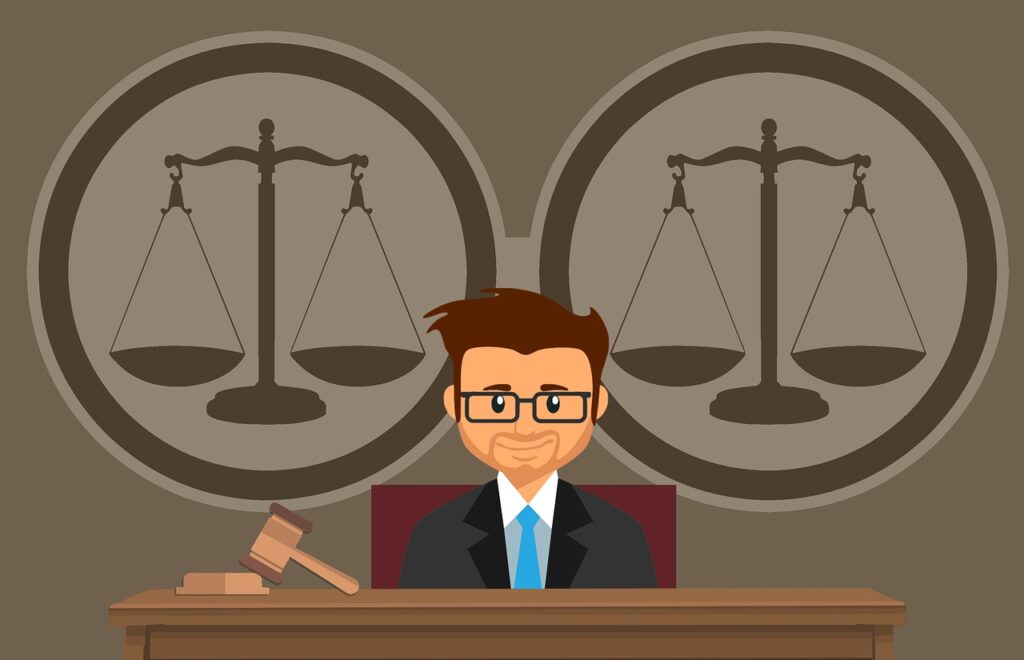Published On: November 25th 2025
Authored: Ishika Agarwal
Maharaja Agrasen Institute of Management Studies
- Court: Supreme Court of India
- Bench: Justices S. Abdul Nazeer, B.R. Gavai, A.S. Bopanna, V. Ramasubramanian (majority), and Justice B.V. Nagarathna (dissenting).
- Date of Judgment: 3 January 2023
Relevant Provisions/Statutes:
- Article 19(1)(a): Freedom of speech and expression
- Article 19(2): Reasonable restrictions on free speech
- Article 21: Protection of life and personal liberty (including dignity)
- Article 32: Right to constitutional remedies
Brief Facts :
In July 2016, a brutal gang rape took place in Bulandshahr, Uttar Pradesh. A young girl and her mother was gang raped on their way to shahajahanpur from noida on national highway 91 in Uttar Pradesh . The men of the family were tied up and beaten brutally . Following the incident, Uttar Pradesh cabinet minister Azam Khan claimed that the crime was part of a political plan to harm the government’s reputation. The survivors found these comments to be disrespectful and an attack on their dignity. They believed that the remarks were not just personal opinions but carried the weight of the state’s authority. As a result, they filed petitions with the Supreme Court, questioning whether such statements could be considered violations of fundamental rights and whether the state could be held responsible for the actions of its ministers. The case was sent to a five-judge bench due to its significant constitutional implications.
Issues Involved
- Whether the restrictions on free speech outlined in Article 19(2) are all-encompassing or if conflicts with other fundamental rights, such as the right to dignity under Article 21, can justify additional limitations.
- Whether fundamental rights can be applied against non-state entities.
- Whether the state has a duty under Article 21 to safeguard citizens from rights violations committed by private individuals.
- Whether a minister’s personal statements can be considered as representing the state under the principle of collective responsibility.
- Whether negative or disrespectful remarks by ministers can be classified as a constitutional tort.
Petitioners’ Arguments
The petitioners contended that their right to live with dignity under Article 21 had been undermined. By minimizing the gravity of their suffering, the comments subjected the survivors to secondary victimization and intensified their trauma.They relied on the judgment in Justice K.S. Puttaswamy v. Union of India (2017), which affirmed that dignity forms an integral part of the protection under Article 21. Further, they argued that a minister’s words could not be divorced from the constitutional office he occupies. Such statements are naturally perceived as carrying state approval, and this undermines public confidence in the justice system.
They also invoked the doctrine of positive obligations, emphasizing that the Constitution not only restrains the state from violating rights but also obligates it to shield citizens from infringements. Failure to correct or restrain the minister amounted to dereliction of this duty. The petitioners cautioned that such remarks may deter victims from reporting crimes and obstruct access to justice, thereby striking at the heart of Article 32 remedies.
Respondents’ Arguments
The State and the minister justified the comments by emphasizing the constitutional guarantee of freedom of speech.They argued that ministers remain citizens first and thus enjoy freedom of expression under Article 19(1)(a). Unless the remarks fell squarely within the restrictions enumerated in Article 19(2), they could not be curtailed. The respondents rejected the theory of vicarious liability, asserting that the principle of collective responsibility applies to legislative functioning and cabinet decisions, not to personal speech. Imputing every ministerial comment to the state would render governance unworkable.
They further distinguished between moral impropriety and constitutional violation. All objectionable statements do not necessarily give rise to a constitutional tort.. Extending liability on such grounds would also amount to judicial overreach, intruding into political discourse. Reliance was placed on precedents such as Shreya Singhal v. Union of India (2015) and Romesh Thappar v. State of Madras (1950), which both affirmed that political speech deserves the widest protection, even when offensive or disagreeable.
Judgment
The Supreme Court delivered a split verdict in January 2023. The majority held that fundamental rights are primarily enforceable against the state, not against individuals. Ministers’ personal statements cannot be attributed to the state unless they reflect official policy.This meant that the State could not be held accountable for the minister’s personal remarks.The majority opinion held that fundamental rights are enforceable primarily in a “vertical” manner—that is, against the state and its instrumentalities, rather than horizontally against private individuals. Unless speech forms part of official state policy or action, the state cannot be held vicariously liable for personal remarks made by a minister. This case clarified that ministers’ speech does not amount to collective responsibility unless tied to cabinet/official policy. At the same time, the Court underlined that ministers carry a heightened expectation of constitutional responsibility and ought to exercise restraint in public speech. The Court acknowledged the grave harm caused by insensitive and dismissive comments, particularly when made by persons holding public office. However, it stressed that constitutional tort liability must not be extended so far as to include every objectionable or improper statement as it hinders the democratic functioning . While their personal comments may not always translate into legal liability for the state, their words carry symbolic weight and can erode public trust in governance. Further , the Court expanded the interpretation of Article 19(1)(a) to the right to receive information and not just the right to express.
Dissent by Justice B.V. Nagarathna
Justice B.V. Nagarathna delivered a dissenting opinion. She argued that while the state cannot automatically be held liable for a minister’s remarks, the right to dignity under Article 21 must temper the exercise of free speech. Ministers, by virtue of their office, are not ordinary citizens; their words carry an aura of state authority.
She proposed that Parliament should enact a statutory code of conduct for public representatives, ensuring accountability for speech that undermines constitutional values. She also recognised the possibility of personal remedies, including damages, for citizens who suffer from derogatory statements made by ministers.
Ratio Decidendi
The binding principle of the case may be summarised as follows:
(i) Exhaustive Nature of Article 19(2): The grounds for restricting speech under Article 19(2) are exhaustive and cannot be judicially expanded by invoking other fundamental rights, such as dignity under Article 21.
(ii) Ministerial Speech and State Liability: Ministers’ personal remarks cannot be automatically attributed to the state unless they form part of official government policy or action. The principle of collective responsibility applies only in legislative or cabinet functions, not to every personal utterance.
(iii) Balancing Fundamental Rights: The court emphasized the importance of balancing the right to free speech under Article 19(1)(a) with the right to dignity under Article 21. However, this balance must be maintained within the framework of the constitution and should not reduce the scope of Article 19(2).
(iv) Right to Information: The judgment expanded Article 19(1)(a) to include the right to receive information, thereby reinforcing the participatory character of Indian democracy.
Obiter Dicta
The Court observed that although ministers enjoy constitutional protection for personal speech, their elevated position requires them to act with self-restraint and constitutional morality. Even when not legally binding on the state, irresponsible or dismissive remarks by public functionaries can erode public confidence, delegitimise institutions, and aggravate the suffering of victims. Ministers are expected to embody the spirit of constitutional governance, and their public statements should reflect sensitivity to citizens’ rights. Justice Nagarathna’s dissent may also be treated as persuasive dicta, especially her call for a legislative code of conduct for ministers and public officials. Though not binding, such recommendations highlight the judiciary’s recognition that constitutional culture must evolve to meet modern challenges of political accountability.
Final Decision
The petitions were dismissed insofar as they sought to impose state liability for a minister’s speech. The Court clarified that liability is personal, not governmental, unless the statement is part of official action. The decision reinforced the balance between free expression and dignity, while introducing the recognition of the right to receive information as part of Article 19(1)(a).



